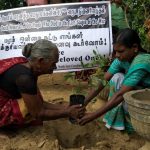The Easter Sunday attacks of April 21, 2019, marked one of the darkest days in Sri Lanka’s history, claiming the lives of over 250 individuals and leaving an indelible scar on the nation. However, the tragedy also served as a catalyst for numerous positive developments, fostering resilience, unity, and institutional reforms. Despite ongoing challenges, Sri Lanka has made strides in rebuilding itself socially, economically, and politically.
Strengthened Interfaith Dialogue
One of the most significant outcomes of the Easter attack has been the emergence of interfaith dialogue as a cornerstone of social rebuilding. Faith leaders, civil society organizations, and survivor communities have engaged in collaborative efforts to promote understanding and reconciliation. Initiatives like interfaith youth programs and collaborative religious events have strengthened trust among Sri Lanka’s diverse religious communities, reducing suspicion and fostering a sense of collective responsibility for peace.
Community-Led Peacebuilding Efforts
Grassroots organizations have taken a leading role in rebuilding trust and cohesion. Survivor networks and advocacy groups have been instrumental in sharing stories of resilience and forgiveness, challenging divisive narratives. These efforts have not only healed communities but also served as a model for conflict resolution in post-conflict societies.
Projects that emphasize youth participation in peacebuilding have further ensured that future generations carry forward the lessons of unity and coexistence.
Improved Counter-Terrorism and Security Measures
The attacks exposed critical gaps in Sri Lanka’s intelligence and security apparatus. In response, the government undertook significant reforms, enhancing coordination among security agencies and establishing mechanisms for real-time intelligence sharing. Training programs for law enforcement on counter-terrorism strategies, alongside community policing initiatives, have improved public safety and trust in state institutions.
Economic Resilience and Recovery
The Easter attack severely impacted Sri Lanka’s tourism-dependent economy. However, targeted campaigns to restore the country’s image as a safe and welcoming destination have borne fruit. Collaborative efforts by the government and private sector have revitalized tourism through initiatives like cultural festivals and sustainable travel programs.
Additionally, the rise of local entrepreneurship, supported by government incentives, has diversified the economy, ensuring greater resilience against future shocks.
Focus on Mental Health and Trauma Care
The attacks underscored the urgent need for mental health services in Sri Lanka. In the aftermath, significant strides have been made in providing psychological support to affected individuals and communities. NGOs and healthcare providers have expanded access to counseling services and introduced trauma-informed care training for professionals. This has not only helped survivors but has also initiated a broader conversation on mental health awareness in the country.
Promoting Digital and Media Literacy
Recognizing the role of misinformation in fueling division, Sri Lanka has prioritized digital and media literacy campaigns. These efforts aim to equip citizens with the skills to critically evaluate information and combat hate speech online. Community-led initiatives and partnerships with tech platforms have played a pivotal role in fostering a more informed and responsible online presence.
Enhanced Global Collaboration
The international community responded to the Easter attacks with solidarity and support, aiding Sri Lanka in strengthening its counter-terrorism capabilities and promoting social cohesion. Programs funded by organizations like the United Nations and the European Union have emphasized capacity building, dialogue facilitation, and education on tolerance. This global partnership continues to underscore Sri Lanka’s commitment to healing and development.
The Path Forward
While significant progress has been made, challenges remain. Economic instability, political tensions, and residual mistrust among communities require sustained attention. However, the positive developments post-Easter attack highlight the resilience of the Sri Lankan people. By focusing on inclusivity, transparency, and proactive governance, Sri Lanka can continue its journey toward becoming a stronger and more harmonious nation.
The tragedy of April 2019 will forever remain a somber reminder of the need for vigilance and unity. Yet, the progress made since then is a testament to the indomitable spirit of Sri Lankans to rise above adversity and build a future rooted in peace, justice, and understanding.




